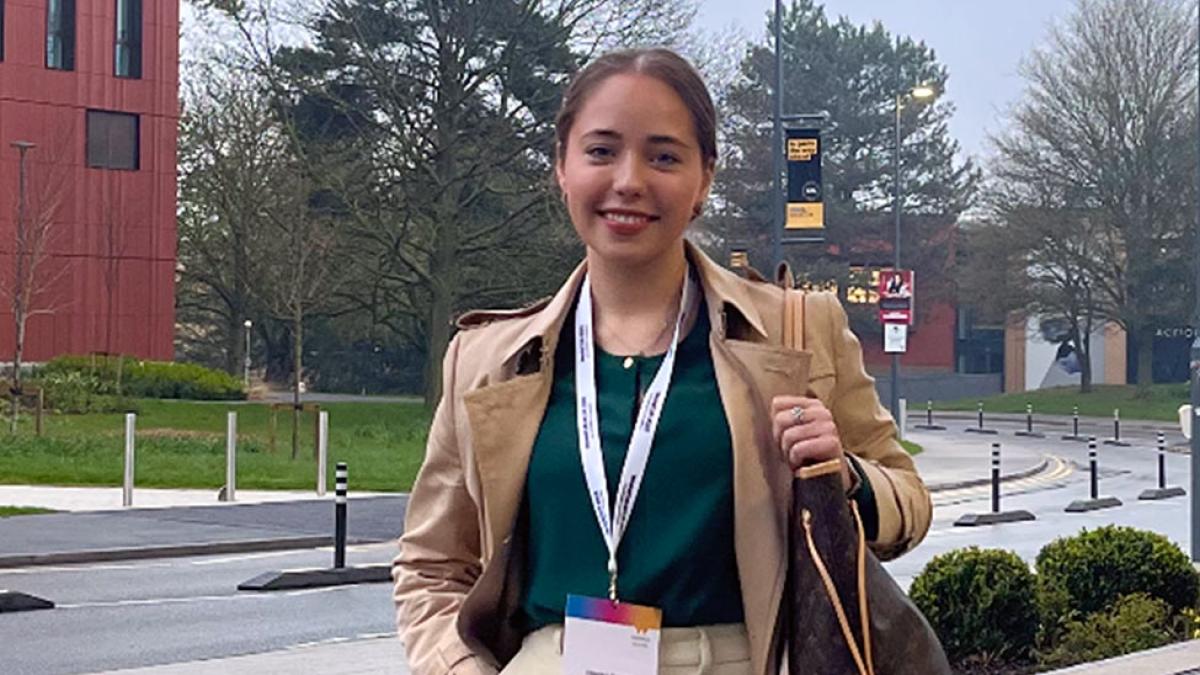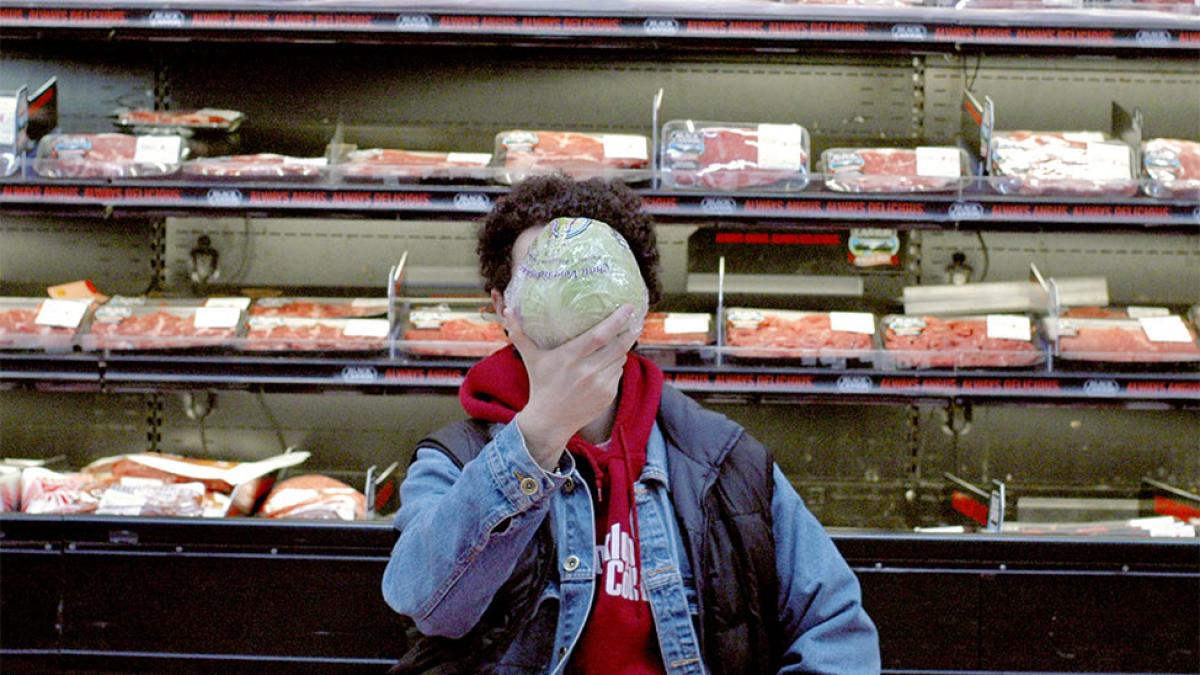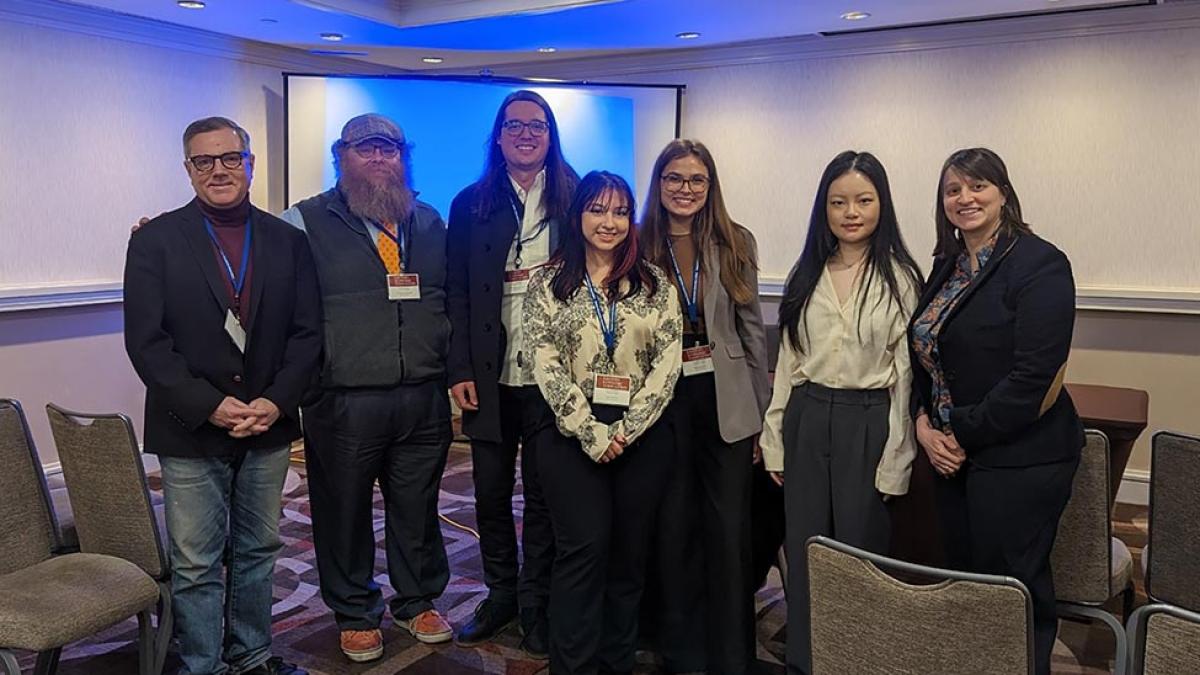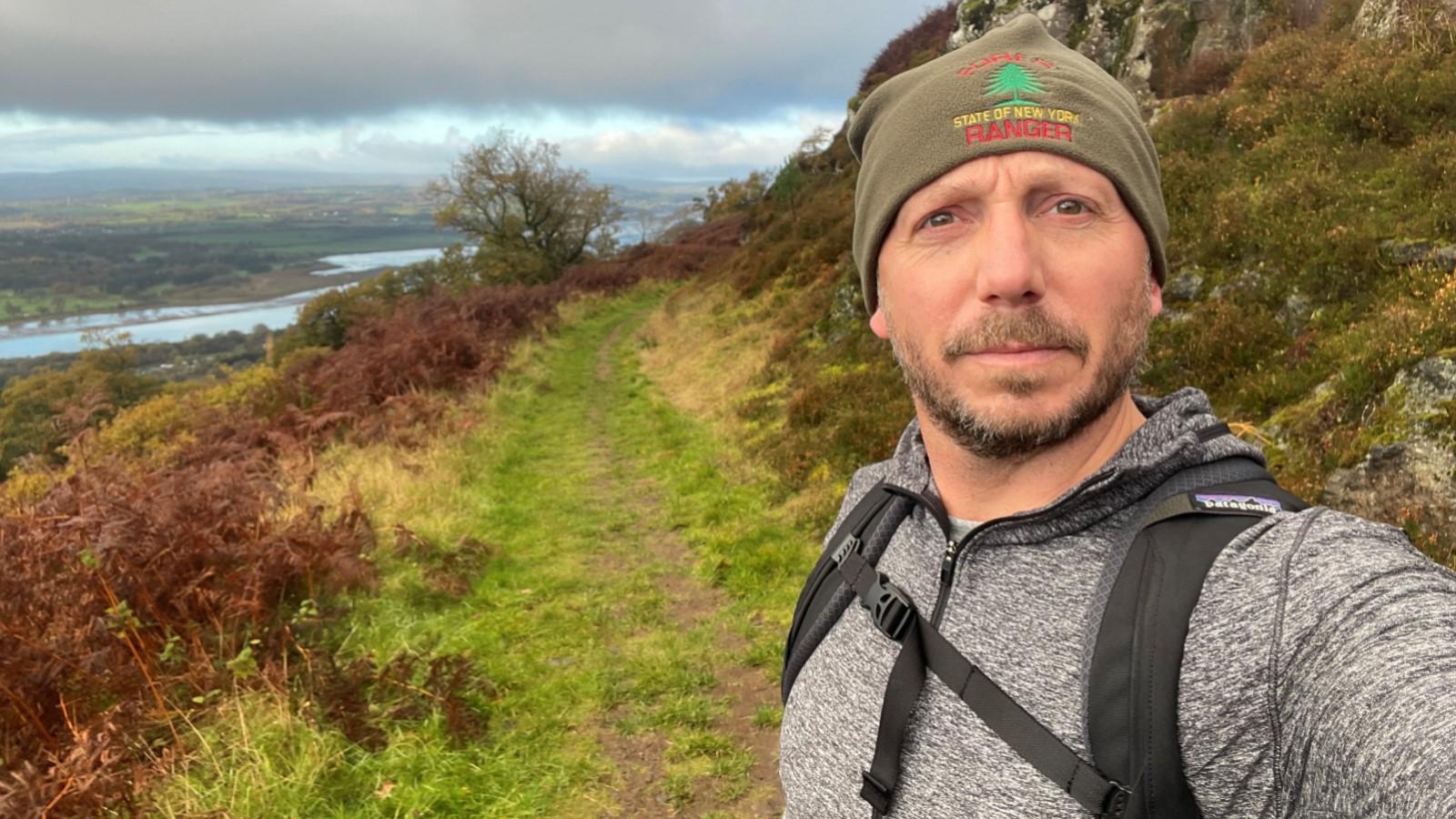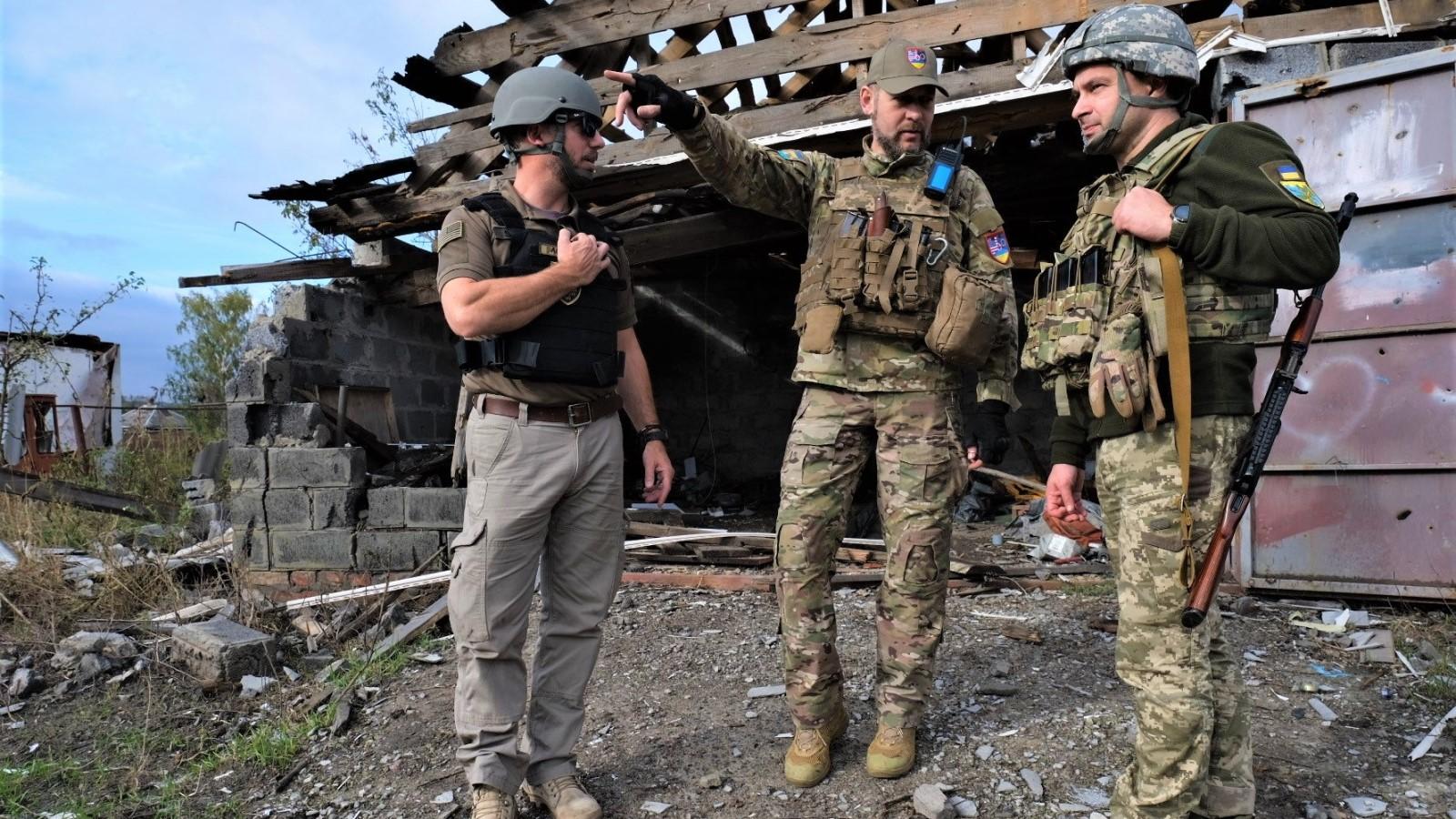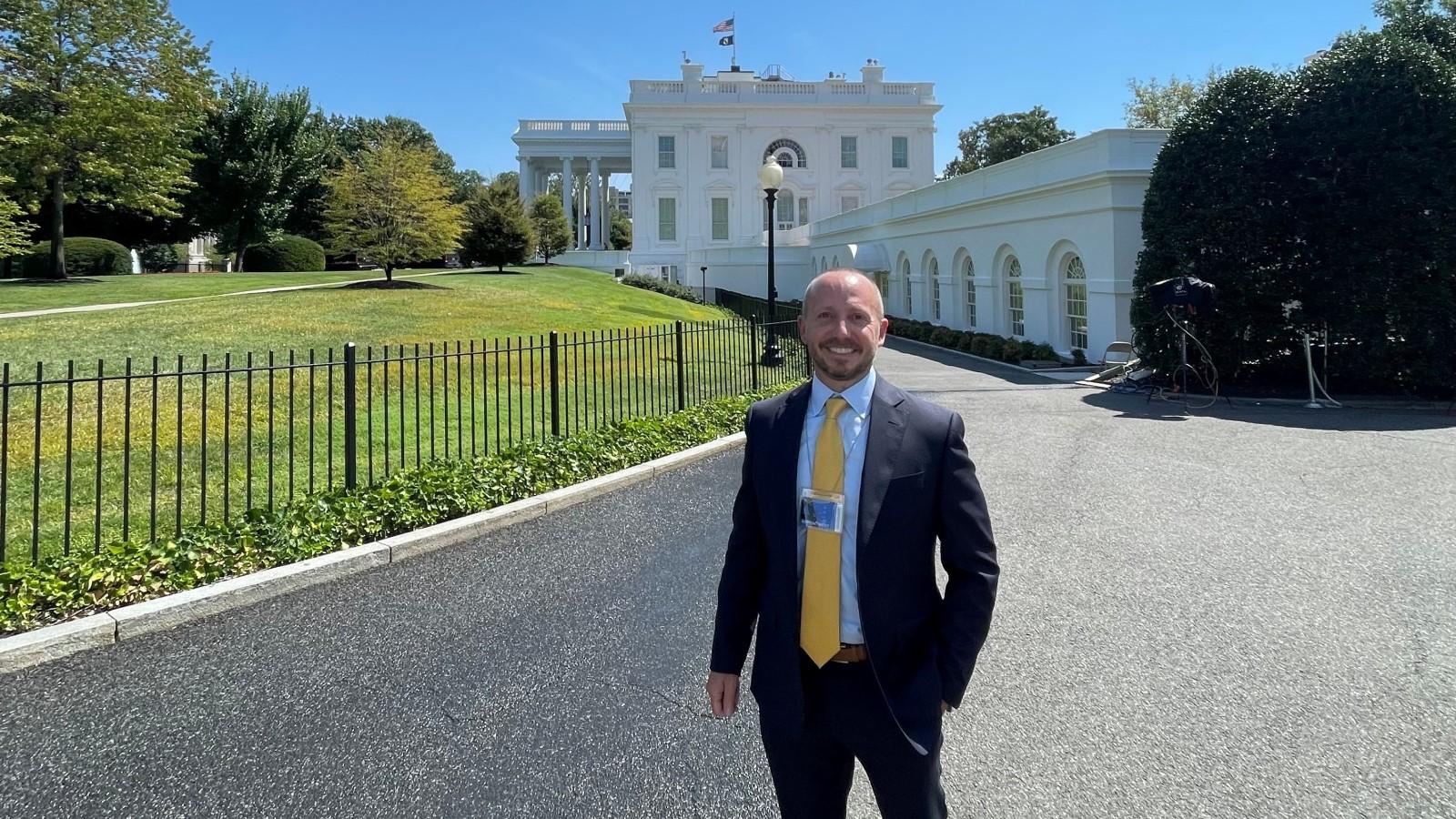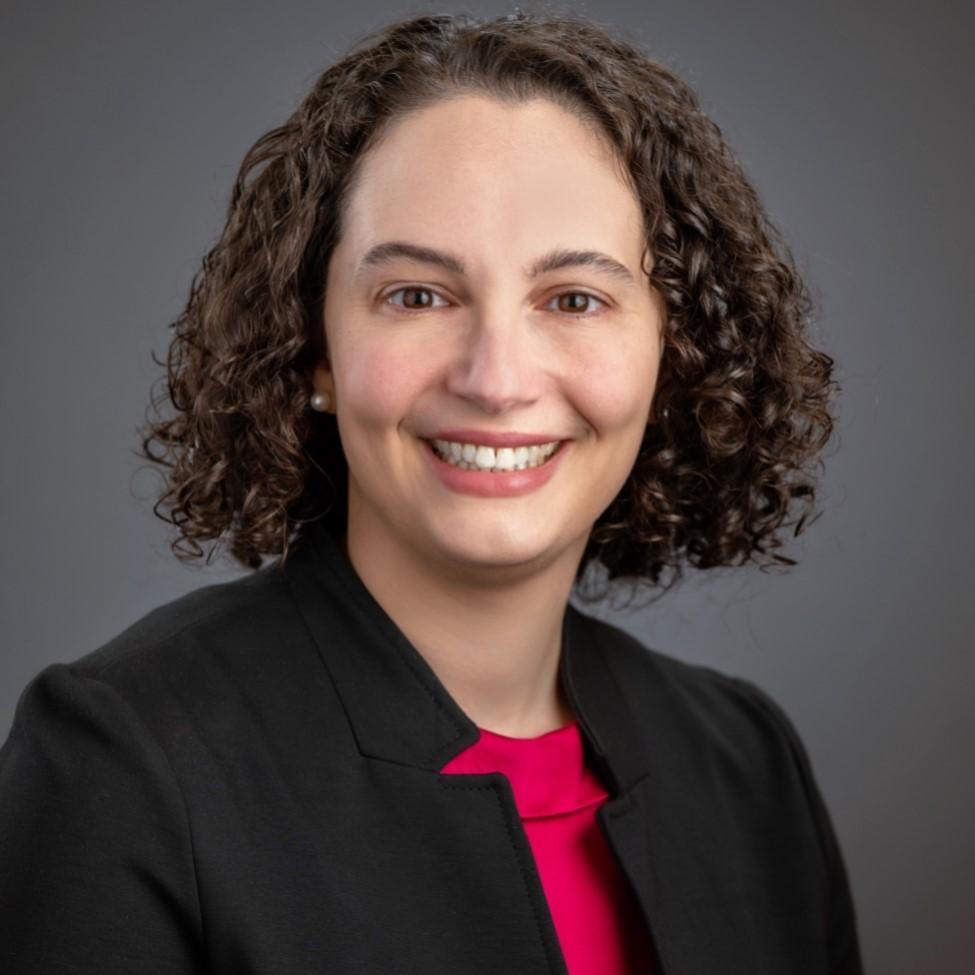
Emily Stolzenberg Receives 2023 Haub Law Emerging Scholar Award in Women, Gender & Law
Professor Emily J. Stolzenberg of the Villanova University Charles Widger School of Law has been selected as the winner of the 2023-2024 Haub Law Emerging Scholar Award in Women, Gender & Law for her paper Nonconsensual Family Obligations, 48 BYU L. Rev. 625 (2022). Professor Stolzenberg is an Associate Professor; she teaches Property, Family Law, Land Use, and Advanced Topics in Family Law.

Professor Emily J. Stolzenberg of the Villanova University Charles Widger School of Law has been selected as the winner of the 2023-2024 Haub Law Emerging Scholar Award in Women, Gender & Law for her paper Nonconsensual Family Obligations, 48 BYU L. Rev. 625 (2022). Professor Stolzenberg is an Associate Professor; she teaches Property, Family Law, Land Use, and Advanced Topics in Family Law.
Professor Stolzenberg’s research focuses on conflicts between obligation and autonomy in the fields of family law and property. Her scholarship has explored a broad range of family-related issues including the rights of unmarried partners and the privatization of dependency. Her recent scholarship has also appeared in the Maryland Law Review and the Boston College Law Review.
Professor Stolzenberg received her JD from Yale Law School, where she was an Editor of the Yale Law Journal and the Yale Journal of Law and Feminism. She also holds an M.Phil. in Political Theory from the University of Oxford and an AB from Princeton University.
Professor Emily Gold Waldman, a member of the award selection committee and the Associate Dean for Faculty Development at Haub Law, said: “Professor Stolzenberg’s thoughtful article asks important questions about whether we are over-relying on consent as a foundation for family support obligations. It critiques consent as a theoretical structure that can contribute to inequality of all kinds—both within a family and between families. This article pushes us all to think about ‘consent’ in a new way.”
About the Award
The Haub Law Emerging Scholar Award in Women, Gender & Law is presented annually in recognition of excellent legal scholarship related to women, gender and the law published by a full-time law professor with five or fewer years of full-time teaching experience. After an open call for submissions, papers are reviewed on a blind basis by members of the Haub Law faculty with expertise in this area. The Haub Law School invites the award recipient to present their winning scholarship to the Haub Law community.
Nominations are due by July 1 of each year and can be directed to Professor Bridget Crawford.
Dyson and Seidenberg Launch New Computational Economics Major
Beginning in Fall 2023, Pace University will offer a new Bachelor’s of Science in Computational Economics, housed in the Dyson College of Arts and Sciences in collaboration with the Seidenberg School of Computer Science and Information Systems and offered on both the New York City and Westchester campuses.
Beginning in Fall 2023, Pace University will offer a new Bachelor’s of Science in Computational Economics, housed in the Dyson College of Arts and Sciences in collaboration with the Seidenberg School of Computer Science and Information Systems and offered on both the New York City and Westchester campuses.
This interdisciplinary program will empower students to answer economic questions and inform business practices using computer science and information technology, including focuses on programming, big data, artificial intelligence, machine learning, and econometrics. Students will learn to code fluently and manage large datasets using R, Python, and SQL, and take courses such as Economic Data Analysis, Applied AI with Deep Learning, and Econometrics: Models and Organizations.
Quantitative strategies and data analytics are skills that are in high demand in today’s workplace. According to Burning Glass in 2022, employment in data analysis and mathematics is expected to grow 27.61 percent while jobs that utilize Python skills are expected to grow by 48.02 percent. Potential career paths for students with a degree in computational economics can include data scientist or data analyst, financial quantitative analyst, economist, chief information officer, business intelligence analyst and statistician.
Related Stories
First-generation college student Olenka Besaga's passion for data analysis and research, alongside her impressive internship experiences, sets her on a path of academic excellence and personal growth.
Pace University will host, “At a Point of Change,” an outdoor student photography exhibition, which will line the fence on Frankfort Street outside One Pace Plaza in Lower Manhattan. The exhibit is open to the public and will run for two months, beginning May 9, 2022.
Highly motivated economics student Hanyu Li, alongside Dyson Professor Mary Kaltenberg, are investigating a little-studied topic: how does a person’s general appetite for risk impact fertility decisions?
Supporting the Pipeline to Practice
Haub Law is committed to diversifying and advancing the legal profession by exposing, educating, and preparing underrepresented students for careers in law. The Law School aims to advance civic and legal education to empower youth in our community and beyond. Each year, the Law School hosts numerous pipeline programs in partnership with local organizations, government, court systems and legal firms who share our mission.
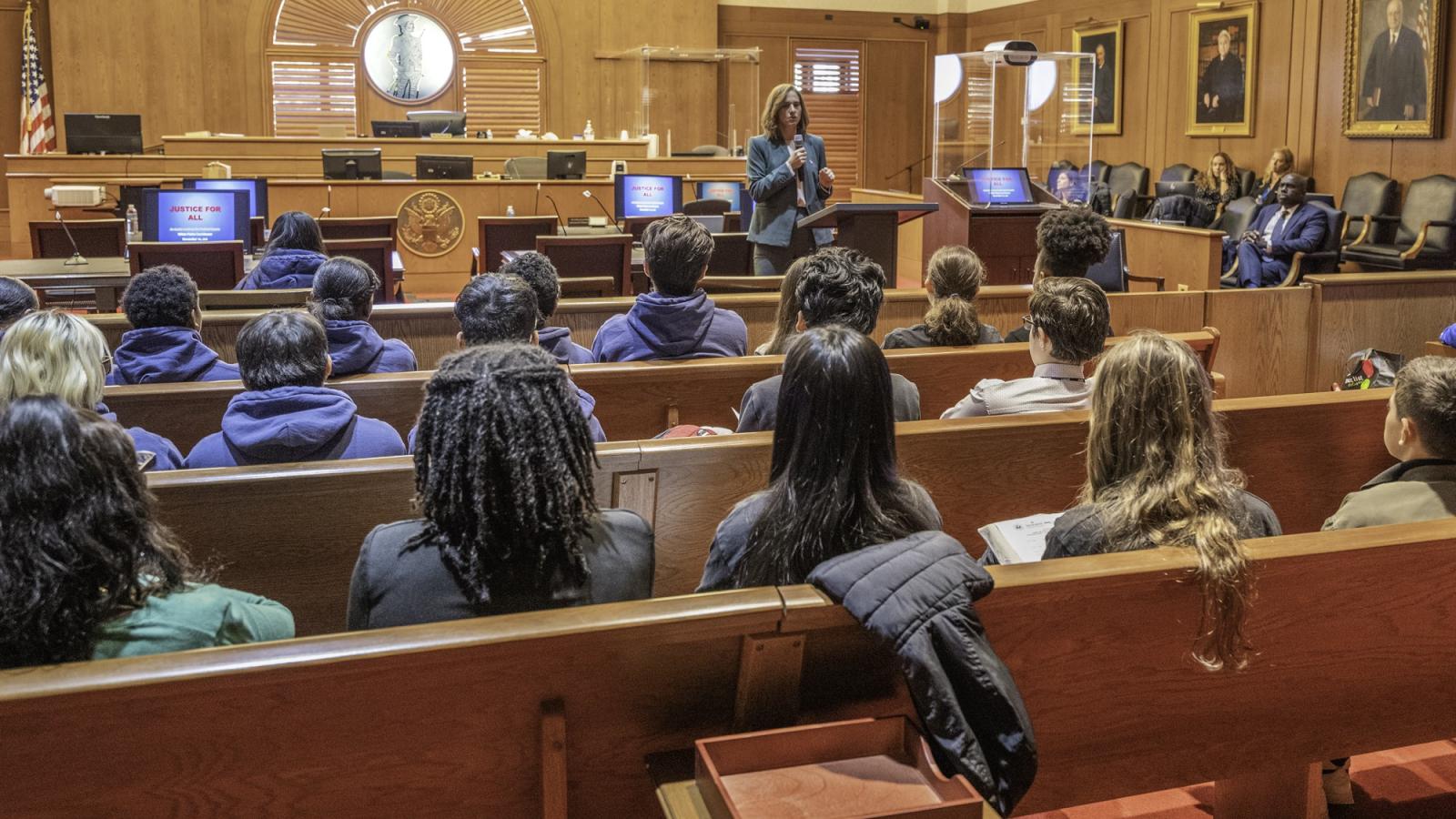
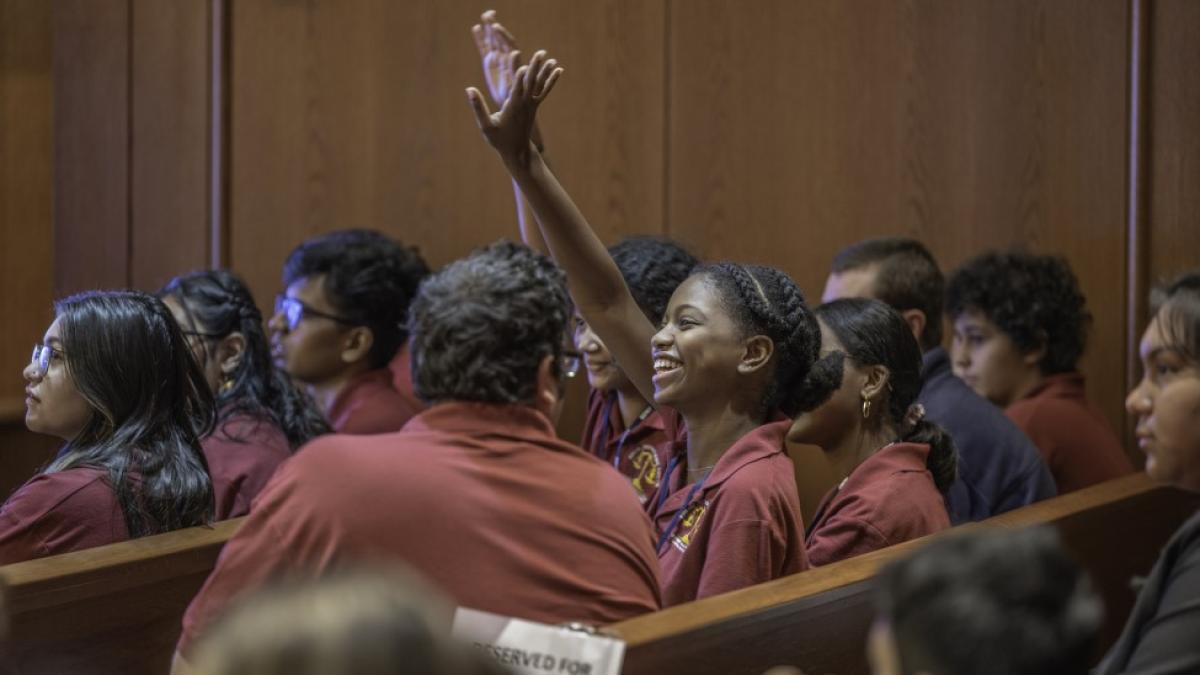
Haub Law is committed to diversifying and advancing the legal profession by exposing, educating, and preparing underrepresented students for careers in law. The Law School aims to advance civic and legal education to empower youth in our community and beyond. Each year, the Law School hosts numerous pipeline programs in partnership with local organizations, government, court systems and legal firms who share our mission.
Pipeline programs are an important part of Haub Law’s Access to Justice Project, which was announced by Dean Horace Anderson in 2020. Pace A2J incorporates curricular, experiential, research, and policy advocacy components, all designed to increase student, faculty and staff engagement in pro bono and community work, and to support the local community in addressing justice gaps. Already, Pace A2J has made notable strides in building community connections and engaging students in efforts to address justice and inequity gaps through curricular, pro bono, and programmatic innovations.
Verizon Street Law Legal Diversity Pipeline Program
In addition to our annual pipeline programs, Haub Law has entered into two major diversity focused partnerships in 2022-23.
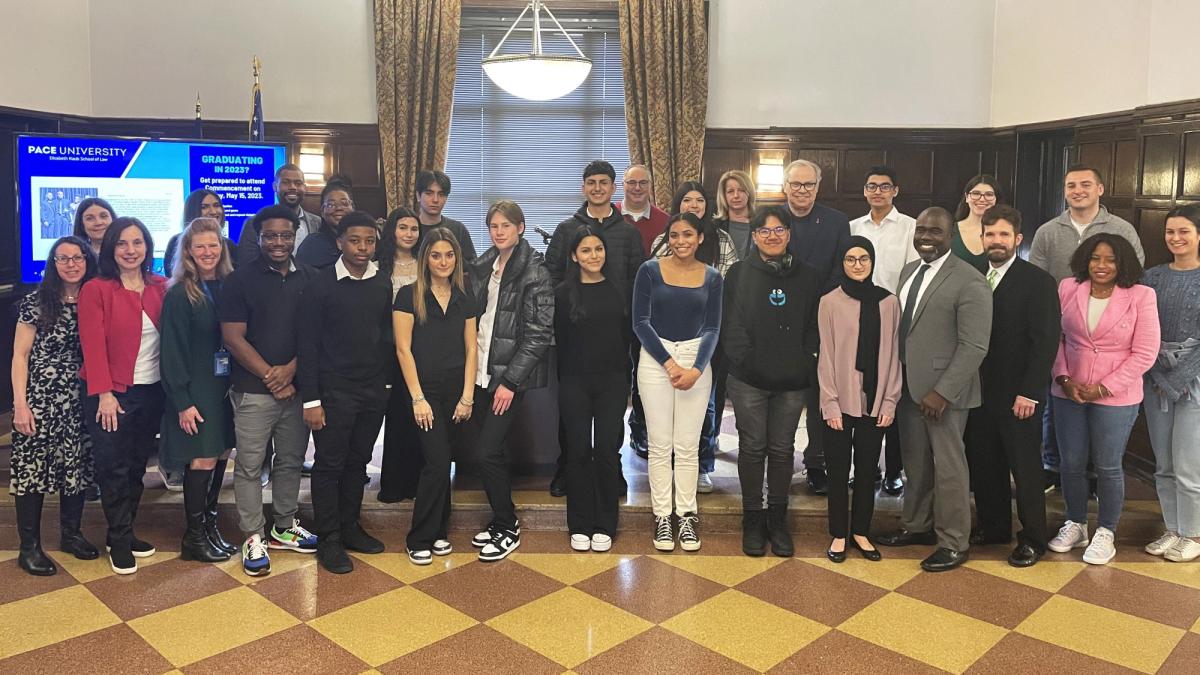
In March 2023, Haub Law students partnered with attorneys from Verizon to deliver its Street Law Legal Diversity Pipeline Program, a global program aiming to advance civic and law education to empower youth. The four-part program included classroom workshops on law-related topics at New Rochelle High School, culminating with a full-day capstone experience at the Law School.
The program was spearheaded by Haub Law alumnus Jerome Silber ’83, Vice President & Deputy General Counsel, Verizon Business Group. Sibler, along with six volunteer attorneys from across Verizon’s legal department, has been running the program for five years. Verizon currently supports Street Law programs in 11 cities, and has reached out to Haub Law to expand its Westchester County program.
“Our partnership with Haub Law was a natural fit,” said Silber. “I’ve enjoyed reconnecting with my alma matter and the law students have been such an asset to our program. They bring a fresh perspective on the curriculum we’ve developed and are great role models for high school students. It has been a rewarding experience for all of us to teach young people in our community about the law and legal profession. Our goal is to provide a support system to help them get where they need to go.
In coordination with the host teacher from New Rochelle High School, eight Haub Law students joined the Verizon attorneys to prepare and teach classes on Immigration Law, Advertising Law, and Search and Seizure to 20 students enrolled in a business law class.
During the seminars, students examined different areas of the law and engaged in discussion and role playing, acting out scenarios such as reasonable search and seizure during a routine traffic stop based on the Fourth Amendment. They learned how to evaluate truthful vs deceptive advertisements and to determine what kind of immigration visa is required for different situations.
The class took a trip to the Law School for the final capstone of the program, which included workshops where students prepared arguments on each topic and presented before a panel of judges. As part of the day’s agenda, students enjoyed a tour of the Law School and casual career conversations with law students, faculty, and Verizon lawyers.
“Programs like this are so important to educate students to know and understand the law, and to be empowered to use it,” said Haub Law Dean Horace Anderson. “We are thrilled to support partners like Verizon who share our commitment to addressing the dearth of diversity in the legal profession and who devote their energy on impactful ways that can improve access to justice in our community.”
Second Circuit Pipeline Program
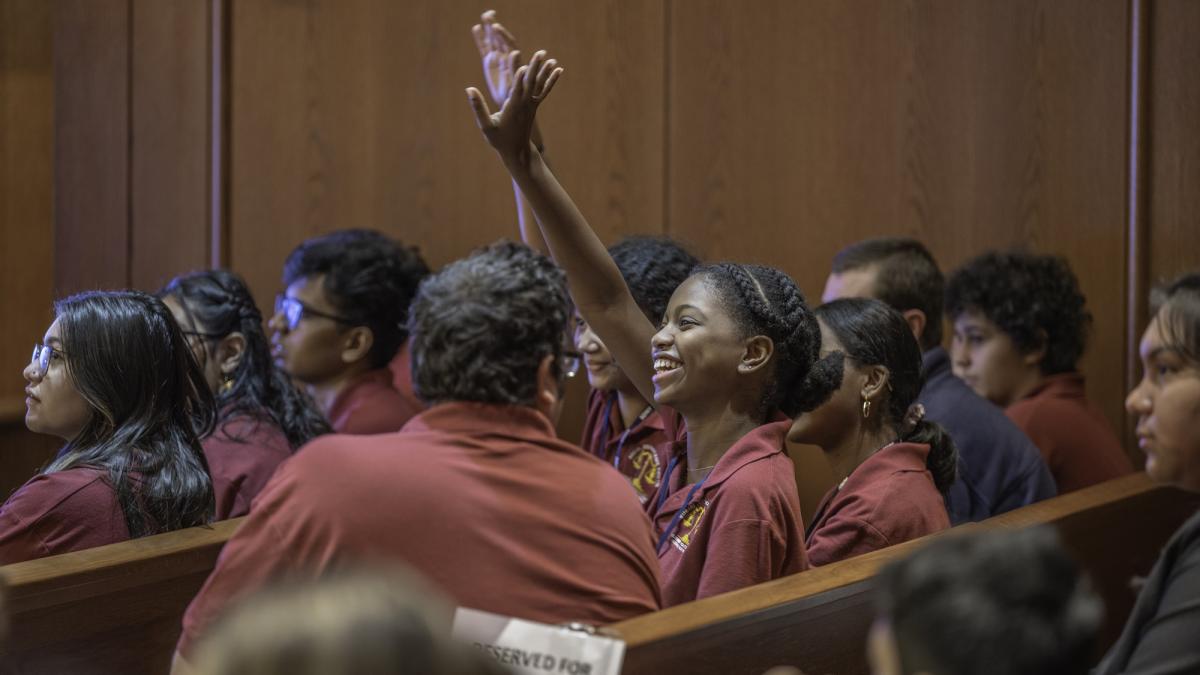
The second diversity-focused partnership is with the U.S. Court of Appeals for the Second Circuit. Named The Honorable Robert A. Katzmann Justice For All: Courts and the Community Initiative, the civic education project of the Second Circuit federal courts, was launched by the late Second Circuit Chief Judge Robert A. Katzmann in 2014. The two-part program brings students first to the federal courthouse and then to a law school.
The first part of the program was held on November 10, 2022, at the federal courthouse in White Plains, and featured speakers including U.S. Attorney Damian Williams, Westchester County District Attorney Mimi Rocah, and several federal judges from the Southern District of New York.
The “Day in Law School” was the second segment of a two-part immersive experience designed to provide Westchester high school students with opportunities to learn about the law and the legal system, including careers in that system. On March 24, 2023, the Second Circuit, Haub Law, and the White Plains Youth Bureau’s Community Youth Court held an event at the Law School for high school students throughout Westchester County and beyond.
U.S. Circuit Judge Joseph F. Bianco and Haub Law Dean Horace Anderson welcomed high school students to the Law School, where they engaged with law students and faculty, toured the Law School campus, participated in a mock law school class taught by Professor Emily Gold Waldman, took part in a Supreme Court argument simulation, and heard from a variety of speakers, including former New York Jets player, and now New York City-based attorney, Michael Catapano. The two-part program is the first of its kind for the Second Circuit.
Summer 2022 Pipeline Partnerships
The Scales of Justice Academy was founded in 2009 by Haub Law Adjunct Professor the Honorable La Tia W. Martin, New York State Supreme Court Justice. Each year, promising young women from diverse backgrounds are selected to participate in this two-week program, which is designed to inspire future educational paths that might lead to careers in the law.
Haub Law participated in a Mock Legislature event with Senate Majority Leader Andrea Stewart-Cousins’ Youth Advisory Council, at the New York State Judicial Institute. The event provided hands-on experience in the State legislative and democratic process for Westchester County youth, promoting skills that foster civic engagement.
The New York Legal Education Opportunity Program, organized by the Hon. Kathie E. Davidson of the New York State Judicial Institute, returned to the Haub Law campus this past summer. The intense six-week program promotes academic success in law school for those historically under- represented in the legal profession. Haub Law welcomed five of the program’s 2022 graduates to its class of 2025 this past fall.
Haub Law hosted the White Plains Youth Bureau’s Youth Court Law Day 2022, bringing together bright and ambitious students with a passion for social justice to learn about the field of law. Students had a chance to meet law leaders including Westchester District Attorney Mimi Rocah and Dean Horace Anderson, as well as law students who joined a career panel to provide advice about law school.
5 Best Travel Credit Cards of August 2023
Pace University Professor Claudia G. Green was featured in WalletHub's piece about Travel Credit Cards.
How much can the best travel credit cards save frequent travelers?
If you are a dedicated traveler and pay close attention to your benefits, you can easily get the value of your annual fee for an American Express Platinum card. For instance, you get: 1) $200 Uber credit; 2) $240 in digital entertainment credit; 3) $200 in hotel credit; and 4) $200 in airline credit fees. Plus, if you apply for TSA or Global Entry, American Express will reimburse you in full. Then, you also have a Priority Pass to clubs in the airports, or you can use your Platinum card for access.

Pee-wee Herman and the complications of talking about people after they die
The internet and social media altered the way people communicate. Newspaper editors and heads of television stations previously called the shots on what was appropriate to talk about. Now? Individuals speak freely, online, whenever they want.
“The lines of ‘appropriate’ and ‘inappropriate’ grief expressions, public conversations about their lives on social media – both positive and negative – and time limits, are immediately blurred and often unacknowledged,” Melvin L. Williams, associate professor of communication studies at Pace University, also previously told USA TODAY.
What Is a J.D. Degree?
While the J.D. is meant to prepare students for a career as an attorney, not all J.D. recipients end up practicing law after graduation. Without passing the bar, individuals with a J.D. can’t represent clients but can use their legal knowledge in other fields, like entrepreneurship or nonprofit work, notes Cathy Alexander, assistant dean for admissions at Pace University’s School of Law in New York.
Change-Agent for Humanity: Basil Seggos '01
From a young age, Basil Seggos ’01 was always interested in the outdoors and with nature itself. As he went through high school, and college, he gained a greater appreciation of the amount of injustice in the world and was motivated to be a part of the effort to try to help resolve some of these issues, specifically environmental issues being faced by people and by the planet. Law school proved to be the perfect fit for him, and he was able to merge his passion for the environment with his sense of and desire for justice.
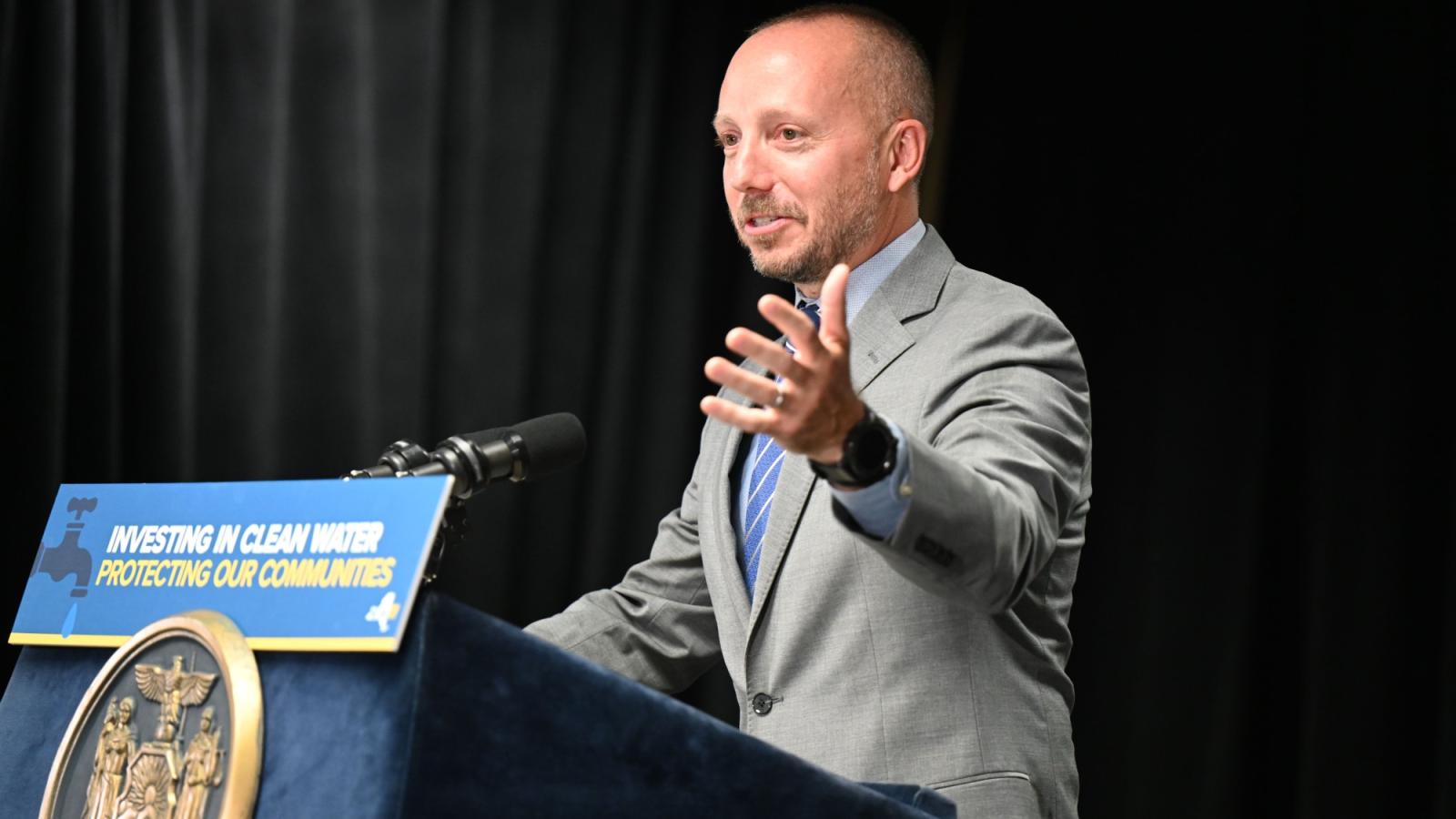
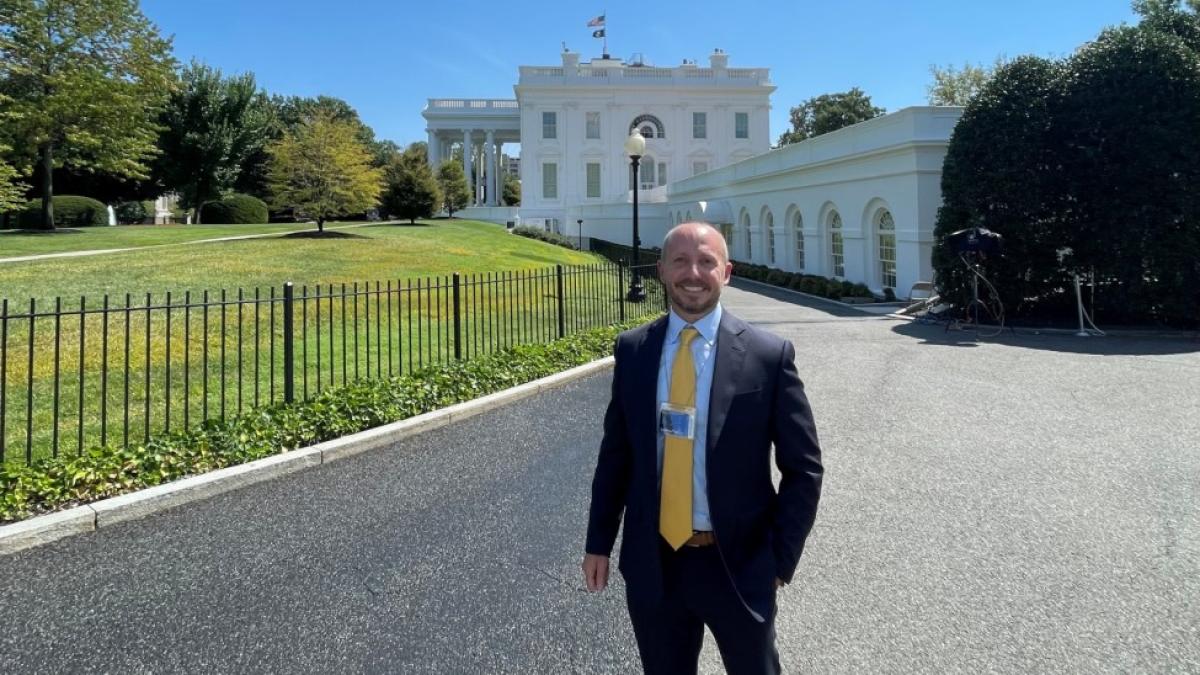
From a young age, Basil Seggos ’01 was always interested in the outdoors and with nature itself. As he went through high school, and college, he gained a greater appreciation of the amount of injustice in the world and was motivated to be a part of the effort to try to help resolve some of these issues, specifically environmental issues being faced by people and by the planet. Law school proved to be the perfect fit for him, and he was able to merge his passion for the environment with his sense of and desire for justice. Appointed in 2015, Basil Seggos ’01 is the New York State Department of Environmental Conservation (DEC) Commissioner. Today, he leads an agency of over 3,000 professionals and is the longest serving DEC Commissioner.
You have accomplished so much as DEC Commissioner, what are you most proud of?
I am most proud of the passage of the state’s climate law and the work we have done to begin its implementation. That would be number one. Number two is rebuilding the agency and reinjecting a sense of purpose through a bolder agency budget, increased staff, and a modernized mission for the challenges over the horizon. DEC was heavily impacted by the economic downturn of the late 2000s. It took the better part of eight years to rebuild the agency to where it is now. Number three is securing billions of dollars for water quality infrastructure across the state. Starting with almost no grant money for infrastructure when I first took this job, we now have a nearly $5 billion grant fund, and the largest revolving loan program in the country. Number four is bringing a sense of environmental justice into the everyday work we do as an agency. This includes helping to guide the agency in a positive way and ensuring we are making decisions and investments with the goal of righting the wrongs of the past. Finally, the last thing would be keeping New York at the lead of important environmental issues, whether it is climate, water, emerging contaminants, or environmental justice. We have set the tone nationally for many important initiatives. And, while we haven’t solved all the state’s legacy issues, we are on the right track.
You were instrumental in the passage of the state’s nation-leading climate change law, the Climate Leadership and Community Protection Act – how did you achieve that tremendous milestone?
We are confronting an existential crisis, so the questions are: what do we do about it? What actions can we take to address the crisis and reduce burdens on front line communities while keeping the state economically competitive? Those questions served as the foundation for the law, and it will likely be one of the most challenging undertakings in state history. We’re now in the implementation phase, and while we develop new policies and investment programs, we’re also doubling down on communicating with New Yorkers. Change of any kind is difficult and change on this scale and in this polarized environment can be frightening if we don’t emphasize constant communication and stakeholder engagement. It was important for us to lay the groundwork in a collaborative way and ensure that the various stakeholder groups had a voice. We worked with environmental justice groups, industries, unions, businesses, and local government officials to create a groundswell of stakeholders who would help craft and implement solution. Goals and targets are critical, but ultimately, the process needs to be collaborative and empowering.
How did you ultimately choose the law as a career and specifically Haub Law?
I was working at the NRDC after college, specifically with the urban environmental team and I got to know a bit about Haub Law. There were some Haub Law professors who were active with the NRDC and they encouraged me to think about law school. It was the perfect opportunity to create a career centered on justice and the environment. I’m so glad that I chose Haub Law.
Which professors at Haub Law had the biggest impact on you?
I distinctly remember Karl Coplan, he was the toughest and most outstanding professor I ever had. Karl managed the Environmental Litigation Clinic at the time, and no one had a better handle of the science, facts, and the law—if you were in his clinic, you better come prepared. He very effectively put students into challenging situations and helped us learn how to become attorneys. And then of course there was Nick Robinson, an absolute legend. He was my first environmental law professor. He had a global view of the law and understanding of how to use environmental law and policy to improve lives. Ann Powers was another terrific professor. All three of them took great care and interest in their students.
What were some of your most impactful experiences during your time at Haub Law?
My time in the environmental litigation clinic was certainly formative and challenging. We students were quickly immersed in real-life cases. During my first two weeks in the clinic, I was handed a case that was headed towards an appeal in federal court. It forced me to evolve from being a mere student into a young practitioner with real clients, briefs and appearances in court. Professor Karl Coplan quickly prepared me for that opportunity. That was the first time that I really felt the ability of a person to impact change in a meaningful way in a court of law.
My time in the environmental litigation clinic was certainly formative and challenging. We students were quickly immersed in real-life cases.
What are your thoughts on New York’s recently passed Green Amendment?
One of the things I take away from it is the fact that New Yorkers value the environment—they went the polls and said yes, the protection of the environment should be enshrined in the state’s constitution. As someone who works on the environment every day in New York, I take pride in knowing that New Yorkers value these issues. Now, the courts will ultimately decide what the green amendment means. There are several cases working their way through the courts to determine the implications of the amendment.
You have an active presence on social media – how do you feel that social media helps to push forward movements for change?
Social media has been an important tool to advance environmental progress. From spreading awareness of issues to galvanizing movements, we’re fortunate to have these tools to help knit us together as a society. In the same breath, social media can also be divisive, and it is often rife with misinformation, and often much worse. There has to be a balance. Use social media as one of the ways to rapidly and widely communicate with the public, but don’t let it supplant the obligation to get out of one’s seat, hit the ground, and be present to speak to people face to face—and listen to what they have to say.
What do you feel is the biggest misconception about climate change law?
The biggest misconception about climate change law is that action is incompatible with progress. That it is hostile to jobs. And the economy. I believe it is the exact opposite. A state or nation that safeguards its environment ultimately protects its economy. All of our climate initiatives are part of a larger theme of progress for New York State.
How did you build equity into the climate law?
Equity and justice are at the heart of the climate law. The law requires us to hit our statewide emissions reduction targets, but it also requires us to ensure we are investing at least 35% of our environmental investments- with a higher goal of 40%- in our frontline communities. We have extended that beyond climate law to our water funding and the recently passed $4.2 billion Bond Act. The status quo of inequity is unacceptable, and it may take years to unpack this and do better for all New Yorkers. It means putting a greater emphasis on equity, now, focusing our work where the conditions have been the worst so we can reverse fortunes and improve health and people’s lives. That is the greatest takeaway of the climate act – the trajectory it has put us on. We now have an ability to truly improve lives of millions of New Yorkers, especially those who have been historically marginalized.
In the fall of 2022, you took a leave of absence to go to Ukraine to aid in humanitarian efforts as the Russian invasion was escalating. You recently went back on another humanitarian mission. What were those experiences like?
When Russia invaded Ukraine, I felt compelled to act. For me it wasn’t enough to speak out on the outrage of the invasion of a democratic ally. I couldn’t just sit on the sideline. I had the ability to go the extra step to provide just a little bit of help where it was needed. Fortunately, I was lucky enough to link up with some veteran and humanitarian groups who were bringing aid into the country, so I went over in the fall and became an ambulance driver for 2 weeks, all the way to the front. And I just returned from another two weeks behind the wheel of an ambulance. Our group also built playgrounds, repaired a roof on a recently bombed community center and provisioned some orphanages. I don’t believe any of us slept during those missions, it was intense. I saw the worst and best of humanity at the same time. We worked in villages that were completely shattered, apartment blocks with massive holes in them, craters in farm fields, people fleeing the invasion, babies left without parents, and yet the Ukrainians were so strong and optimistic for their future. Seeing the resilient Ukrainians and their appreciation for the global outpouring of support for their cause was inspiring. All of us can and should help in our own way, whether on the ground in Ukraine or from the states. And there is so much demand for legal assistance, whether in documenting war crimes or helping displaced persons piece their lives back together. Lawyers and law students can always play an important role to help stabilize the impacts of conflict. Getting involved in the cause of Ukraine has been life changing.
Many of our students participate in summer internships with the DEC and over the years, the DEC has employed many Haub Law graduates – what makes our students stand out?
Haub Law students are always the best prepared lawyers when they come into this agency. Because they have gone to Haub Law they are also driven by a sense of commitment to the environment. And they come in with that energy, passion, and knowledge and quite often they have gone through one of the clinics and with practical experience. If I have a choice between a Haub Law student and comparable student from a different school, my instinct is to go with the Haub Law student because I know that person will excel. Right now, in my office, we have at least 19 Haub Law graduates in our counsel’s office and in other leadership positions in the agency. A Haub Law graduate is also serving as Assistant Counsel to the Governor for the environment portfolio.
What advice would you give to a student who wants to pursue a career in environmental law?
It is the most exciting time ever to get into a career in the environment given the scale of regulation and investment in climate action, environmental justice, and environmental infrastructure. Whether you are going in to work at a firm, a company, non-legal work, or in policy, it is an extraordinarily busy field. We need the best minds on this given the scale of the challenge.
Your wife, Rose, is a 2004 graduate of Haub Law – did you meet in law school, and does she share your same passion for the outdoors and environment?
Rose and I met because of our shared passion for the environment. We had the chance to work together on a case when she was a student in Haub Law’s Environmental Litigation Clinic and I was with Riverkeeper, so it is fair to say that we owe our relationship to the negligence of a polluter (whom we brought to justice). We both love the outdoors and do our best to adventure with our family in some wild and beautiful places. She’s just as dedicated as I am to ensuring that we can bequeath to our kids a clean and healthy planet.
What are some of your hobbies outside of your profession?
Dad time. I spend most of my free time with my kids coaching their lacrosse teams, supporting their sport or art interests, and spending lots of time outside. Boating. Hiking. Fishing. Skiing. I spend my own time running, watching the Yankees, and restoring my old house. And I love reading-- nonfiction exclusively. Reality is more interesting than fiction, and history is always there to teach us about the present and the future.
